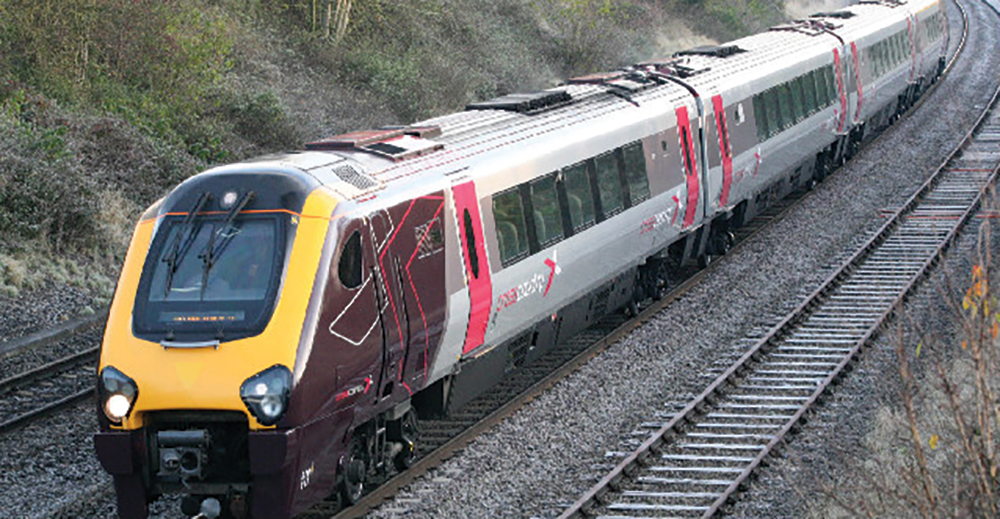
Cross Country Fare Evasion Policies
Cross Country operates long-distance services across Great Britain, connecting major cities from Aberdeen to Penzance and from Cardiff to Cambridge without passing through London. Their fare enforcement policies reflect the long-distance nature of their routes and the complexity of their network. If you've received a penalty fare notice or are facing prosecution for fare evasion on Cross Country services, understanding their specific procedures and your legal rights is essential.
Penalty Fare Amount
Cross Country typically charges penalty fares of £20 or twice the full single fare to the next station, whichever is greater. However, due to their long-distance routes, penalty fares can be significantly higher than on other operators, sometimes exceeding £100 plus the cost of the journey. For more serious cases, they may pursue prosecution instead.
Appeal Process
You have 21 days to appeal a Cross Country penalty fare through their Independent Appeals Service. Given the complexity of their fare structure and routes, appeals often require detailed evidence. Our specialists understand Cross Country's specific requirements and can help develop a compelling appeal strategy.
Prosecution Thresholds
Cross Country may pursue prosecution rather than issue penalty fares for deliberate fare evasion, repeated offenses, or high-value journeys (which are common on their long-distance routes). Their focus on longer journeys means that prosecutions often involve larger financial penalties compared to more urban operators.
Payment Options
Penalty fares must be paid within 21 days to avoid further action. Cross Country offers payment through their website, by phone, or by post. Given the potentially high value of their penalty fares, they may consider payment plans in cases of financial hardship, though this is discretionary.
Required Documentation
For successful appeals, you'll typically need comprehensive evidence such as ticket purchase receipts, railcard proof, evidence of attempted payment, or documentation of exceptional circumstances. For Cross Country's complex routes, evidence related to connecting services and multi-leg journeys can be particularly important.
Common Defenses
Successful defenses against Cross Country penalty fares often include evidence of ticket machine malfunctions, confusion about complex route validity, issues with connecting services, overcrowding preventing conductor access, or exceptional circumstances like medical emergencies or train delays affecting connections.
Important Information About Cross Country
Network Coverage
Cross Country operates the most extensive geographic network of any UK train operator, running services from Aberdeen to Penzance and from Bournemouth to Manchester. They serve over 100 stations across Great Britain, specializing in long-distance routes that bypass London, connecting major cities including Birmingham, Manchester, Sheffield, Leeds, Edinburgh, Glasgow, Bristol, and many others.
Ticket Checking Policy
Cross Country trains typically have conductors who check tickets during journeys. Their long-distance nature means passengers may be checked multiple times on a single journey. Some stations they serve have barriers, but many don't, making on-board checks their primary enforcement method. High-value fares mean they prioritize thorough ticket inspection.
Fare Complexity
Cross Country's routes involve particularly complex fare structures, with different ticket types, permitted routes, and restrictions. This complexity can lead to genuine passenger confusion that might result in inadvertent fare evasion. Our specialists understand these complexities and how they might form part of a defense strategy.
Recent Success Stories
Route Validity Appeal
A client received a £110 penalty fare for allegedly taking an invalid route with their ticket. We demonstrated that the route restrictions were extremely complex and not clearly explained at purchase. We also provided evidence of similar tickets being valid on the same route on different days, showing inconsistent enforcement. The penalty was reduced to a warning.
Result: £110 penalty completely withdrawn
Connection Issue Defense
Our client faced a penalty fare after missing a connection and taking a different Cross Country service than originally booked. We provided evidence of the missed connection being due to another operator's delay, along with our client's attempts to speak with staff before boarding the alternative service. The penalty was cancelled and replaced with a simple ticket adjustment fee.
Result: £85 penalty reduced to £12 administration fee
Frequently Asked Questions
Are Cross Country's penalty fares higher because of their long routes?
While the standard formula (£20 or twice the single fare to the next station, whichever is greater) is the same as other operators, Cross Country's long-distance routes often mean that the "next station" fare is significantly higher. This can result in much larger penalties compared to urban operators. Our team can verify whether your penalty has been calculated correctly.
What if I got on the wrong Cross Country train due to confusion?
Cross Country operates multiple services that share portions of routes before diverging to different destinations. If you boarded the wrong service by genuine mistake, this can form the basis of an appeal, particularly if you can demonstrate the confusion was reasonable (e.g., last-minute platform changes, similar departure times, or inadequate announcements). Our specialists can help gather the required evidence.
How does Cross Country handle advance tickets used on different trains?
Advance tickets are normally valid only on specified services. Cross Country typically issues penalty fares if you use an advance ticket on a different train without prior authorization. However, in circumstances where you missed your booked service due to connections or other railway disruption, you may have grounds for appeal. We can help document such circumstances effectively.